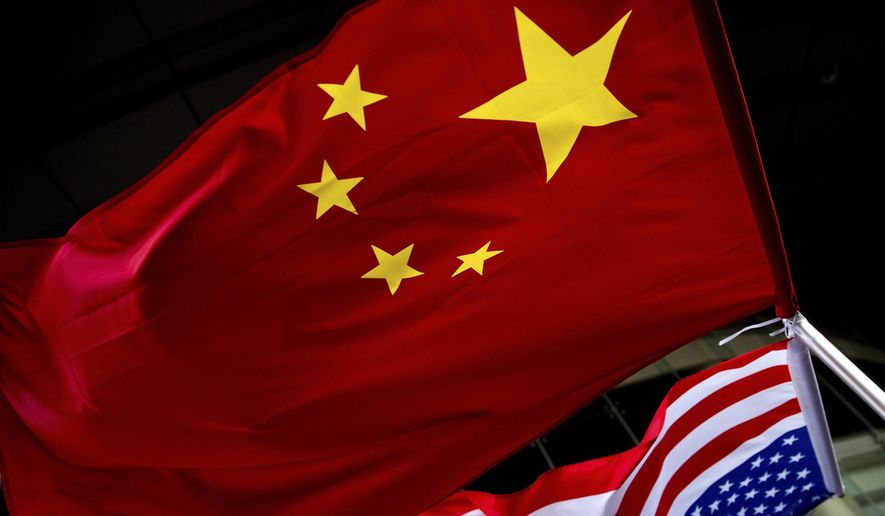China has built its economy in part on research funded by taxpayers in the U.S., then siphoned across the Pacific Ocean by academics recruited by Beijing to act as double agents, stealing intellectual property from their American universities, a bipartisan Senate report revealed Monday.
The academics signed contracts that in some cases committed them to hiding their dual research status from their U.S. employers while giving China a first look at their work, the Senate Homeland Security and Governmental Affairs permanent subcommittee on investigations found.
Beijing’s interest in stealing U.S. military and economic secrets has long been known, but the federal government was slow to act, the report says.
“American taxpayers have been unwittingly funding the rise of China’s economy and military over the last two decades,” said Sen. Rob Portman, Ohio Republican and chairman of the investigative subcommittee, adding that “our own federal agencies have done little to stop their actions despite being aware of China’s talent plans.”
One China-backed researcher downloaded more than 30,000 files from an Energy Department lab and then fled back to China. In another instance, the report detailed how a professor at an American university working in a science field with both civilian and military applications found a way to circumvent U.S. export rules and get his findings back to China.
Investigators said he was paid by federal agencies to perform research while running a China-based lab, and he sponsored visiting Chinese students in the U.S. He then used the students to transfer his research back to China without having to travel himself.
The federal agency that investigated the case said many of the visiting students were “directly affiliated with research and development organizations involved in China’s military modernization efforts.”
Senate investigators said China has more than 200 programs to recruit research talent at home and abroad. The Senate report looks at one of them, the Thousand Talents Plan, which is directly run by the Communist Party Central Committee.
Investigators obtained some of the contracts that Thousand Talents Plan recruits sign with China and found researchers were pledging to hide their ties from U.S. institutions, all while promising to share their findings with their Chinese overseers.
One contract urged a researcher to run “shadow labs” in China, and other contracts required researchers to recruit others into the program. One Senate investigator compared it to a pyramid scheme and said it was no wonder the Thousand Talents Plan exceeded Beijing’s goals for growth.
“Chinese talent recruitment plan members misappropriated U.S. government funding, provided early basic research ideas to their Chinese employers, stole intellectual capital from U.S. basic research before it was published, and engaged in intellectual property theft,” the report concluded.
FBI Director Christopher A. Wray in July told Congress that the bureau is increasingly concerned about China’s talent recruitment strategy and pointed out that the U.S. taxpayer is often providing the money for the research that is advancing China’s “economic dominance over us.”
But the FBI was slow on the draw, the Senate report says.
The bureau had a list of China-backed researchers in 2016 but didn’t share the information for two years.
The senators who ran the investigation said the government needs a better strategy. The State Department could do more to try to screen out potential double-agent researchers applying for visas to visit the U.S., federal law enforcement needs to share more data with universities, and the schools should do more to vet whom they are hiring.
The report also suggested that the administration slap restrictions on research funded by American taxpayers.
After public scrutiny last year, China moved to delete references to the Thousand Talents Plan, investigators said. A list of participating scientists was scrubbed from the internet, and a Chinese news outlet reported that a directive came from on high ordering media to suspend reporting on the program out of concern for researchers’ safety.
Mr. Portman’s subcommittee will draw even more scrutiny Tuesday with a hearing on the report.
• Stephen Dinan can be reached at sdinan@washingtontimes.com.




Please read our comment policy before commenting.